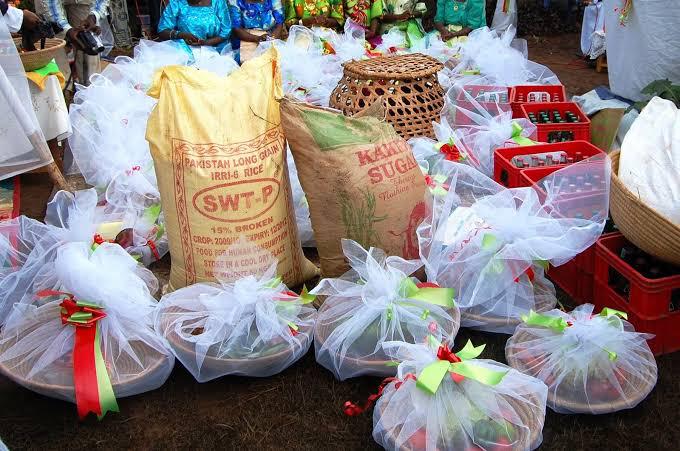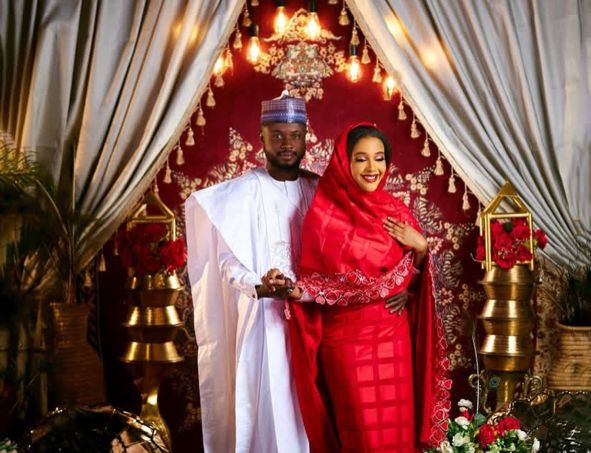Entertainment
Many Cultures, One Country: Nigerian Traditional marriages Uncovered

In Nigeria, getting married is more than just two people becoming husband and wife. It is a big family event that brings two families together and shows the beauty of culture and tradition.
Many Nigerians still follow traditional marriage steps before or alongside church or court weddings. The Yoruba, Igbo, and Hausa-Fulani groups each have their own special way of doing it, with important steps, special items, and family blessings.
Yoruba Traditional Marriage

Yoruba couple
Among the Yoruba people, the marriage process begins with an introduction called “Mo mi mo e,” which means “know me, know you.” This is a small family visit where the groom’s family meets the bride’s family to say they are interested in marriage.
The main event is called the engagement, or “Idana.” On this day, the groom’s family brings a letter to the bride’s family, asking for their daughter’s hand in marriage. The bride’s family reads the letter aloud and responds with a letter of acceptance.
After this, both families pray for the couple. Then, the groom’s family presents traditional gifts. These include kolanuts (for unity), alligator pepper (for purity), honey and sugarcane (for a sweet life), salt (to preserve love), yams (to show fertility), palm oil (for wealth), drinks, a Bible or Quran, and clothes or jewelry for the bride.
The bride enters the venue dressed in traditional Yoruba clothes like aso-oke and a head tie called gele. She kneels to greet both families and is blessed. She then finds the groom and places her veil over him, showing that she accepts him. He puts a ring or bracelet on her, and they are now traditionally married. The day ends with music, food, and dancing.
Igbo Traditional Marriage

Williams Uchemba and wife
In Igbo culture, the traditional wedding starts with a visit called “Iku Aka,” which means “knocking on the door.” The groom’s family visits the bride’s home to ask for permission to marry. If the bride’s family agrees, they give the groom a list of items he must bring for the marriage to happen.
These items often include kolanuts (for peace), palm wine (for union), a goat or cow (to show wealth), bags of rice, salt and pepper (to add flavor to life), tobacco or snuff (to respect elders), drinks, and clothing wrappers like George or Ankara. These gifts are not meant to buy the bride, but to show that the groom values and respects her family.
The main event is called “Igba Nkwu,” which means “wine carrying.” On this day, the bride dresses in traditional clothing with coral beads and carries a cup of palm wine. Her father gives her the wine and asks her to find her husband in the crowd. When she finds him, she kneels and gives him the drink. If he accepts and drinks it, the marriage is sealed. The bride’s family then blesses the couple, and the party begins with music, food, and sometimes masquerades.
Hausa-Fulani Traditional Marriage

Hausa couple
In the northern part of Nigeria, Hausa-Fulani weddings are simple and follow Islamic traditions. It begins with a visit called “Na Gani Ina So,” meaning “I have seen her and I like her.” The groom’s elders visit the bride’s family to show interest. If the bride agrees, the families meet again for a formal discussion called “Gaisuwa.”
The bride price, called “Sadaki,” is agreed upon and paid. It is often small, as Islam teaches that it should not be a burden. Once this is done, the marriage ceremony, known as “Nikkah,” is held at a mosque or home. An imam prays and gives advice to the couple, and the marriage becomes official.
After this, the bride receives gifts known as “Kayan Zina.” These include clothes, perfumes, shoes, makeup, prayer mats, pots, plates, food items like sugar and milk, and other items she needs to start her new home. There is also a celebration called “Walima,” where people eat, pray, and sometimes enjoy drumming or dancing, depending on the family.
Another special part is “Kamun Amariya,” where women gather to pamper the bride, decorate her hands and feet with henna, and give her marriage advice.
Although Yoruba, Igbo, and Hausa-Fulani people marry in different ways, the goal is the same. It is about love, respect, and joining two families. Every step and every gift has a meaning. These traditions continue to bring joy, beauty, and unity to Nigerian weddings today.


